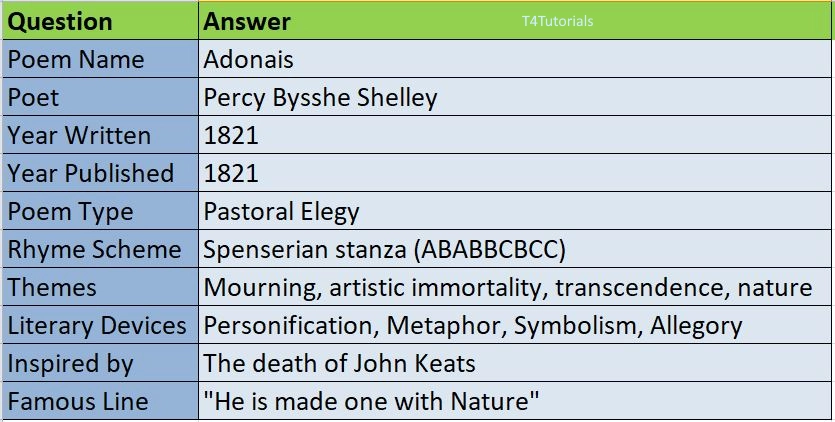Summary:
Adonais is an elegy written by Percy Bysshe Shelley in 1821 to mourn the death of John Keats, who died at the young age of 25. The poem follows the tradition of classical pastoral elegies and is inspired by the works of Bion and Moschus. Shelley personifies nature as mourning Keats’ death, and he expresses deep sorrow over the loss of such a young and talented poet. He blames Keats’ harsh critics, particularly those in the literary world, for contributing to his death. However, as the poem progresses, Shelley shifts from mourning to a more transcendental view. He suggests that Keats is not truly dead but has become one with the eternal spirit of nature and art. The poem ultimately conveys the idea that while human life is fleeting, art and poetry are immortal. Shelley concludes with an uplifting message that Keats now exists beyond the limitations of the physical world, and he finds solace in the idea that death is not an end but a transformation into something eternal.
10
Score: 0
Attempted: 0/10
Subscribe
| Question | Answer |
| Poem Name | Adonais |
| Poet | Percy Bysshe Shelley |
| Year Written | 1821 |
| Year Published | 1821 |
| Poem Type | Pastoral Elegy |
| Rhyme Scheme | Spenserian stanza (ABABBCBCC) |
| Themes | Mourning, artistic immortality, transcendence, nature |
| Literary Devices | Personification, Metaphor, Symbolism, Allegory |
| Inspired by | The death of John Keats |
| Famous Line | “He is made one with Nature” |